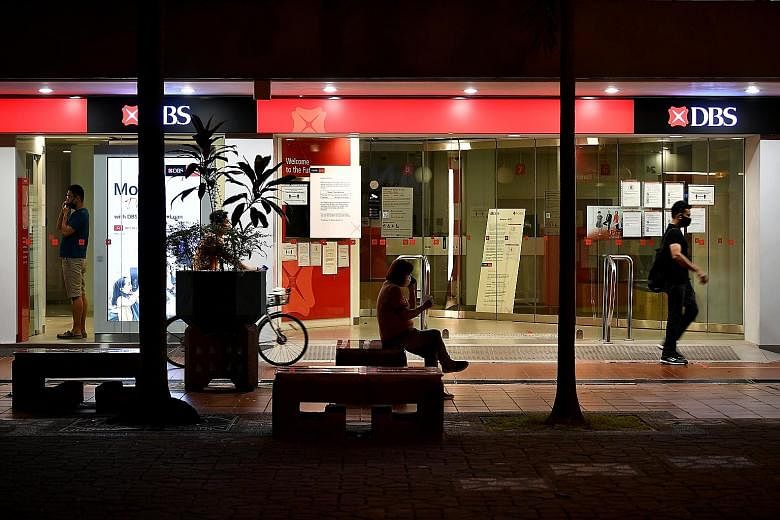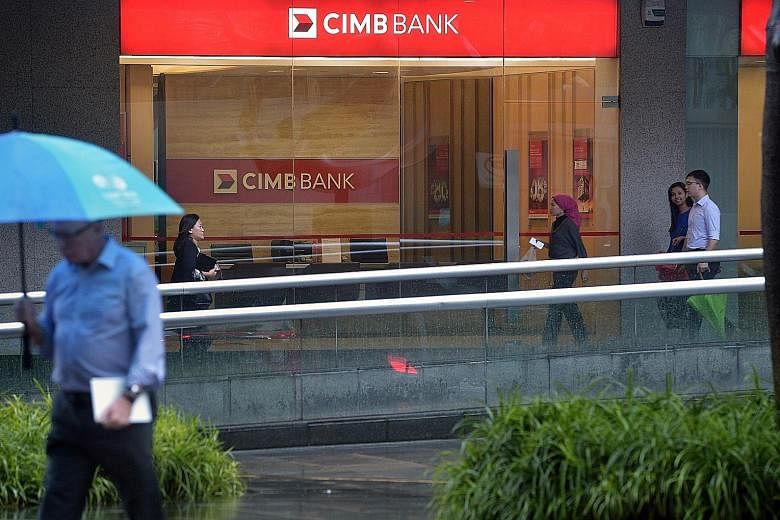A number of banks in Singapore handled about US$4.5 billion (S$6.13 billion) in suspicious transactions between 2000 and 2017, with DBS, CIMB and Deutsche banks among those that processed the largest sums of such funds here.
This is the findings of the International Consortium of Investigative Journalists (ICIJ) on leaked files, comprising so-called suspicious activity reports, from the Financial Crimes Enforcement Network (FinCEN) in the United States.
The consortium noted that in almost 20 years, Singapore received about US$3 billion and sent US$1.5 billion in 1,781 suspicious transactions.
The Monetary Authority of Singapore said yesterday that it is aware that Singapore banks were mentioned in media reports on suspicious transaction reports filed with FinCEN.
Although such suspicious transaction reports do not imply that the transactions are illicit, MAS takes such reports very seriously, said a spokesman.
"MAS is closely studying the information in these media reports, and will take appropriate action based on the outcome of our review."
In all, the ICIJ reported on Sunday that the files contained information about more than US$2 trillion worth of transactions between 1999 and 2017, which were flagged by internal compliance departments of financial institutions as suspicious.
Experts told The Straits Times that filing suspicious activity reports do not translate to wrongdoing.
Further, banks and financial institutions are obliged to flag unusual transactions so that regulators can follow up on them, they added.
For example, when an account with typically small transactions gets an unusually large deposit of money, it would pop up on a bank's radar, they noted.
Alternatively, if a bank customer who has $1 million in his account decides to transfer all his money to another bank, the transaction may also show up as "suspicious".
Associate Professor Lawrence Loh of the National University of Singapore Business School said: "The revelation so far has been more focused on the movements rather than the applications of the funds."
In Singapore, the Commercial Affairs Department (CAD) publishes in its annual report the number of suspicious transaction reports it receives. The CAD is the police unit that deals with white-collar crime.
Its Suspicious Transaction Reporting Office received 32,660 reports in 2018, down 8 per cent from 35,471 reports in 2017, according to its 2018 annual report.
The report shows banks filed the most number of suspicious transaction reports: 16,314. Casinos came next with 6,510, followed by money-changers and remittance agents with 4,823.
The consortium on Sunday released a list of banks in Singapore involved in the allegedly illicit transfers, based on more than 2,100 reports amounting to some $35 billion, that were filed by about 90 financial institutions.
A report, however, may contain multiple transactions.
The list "displays cases where sufficient details about both the originator and beneficiary banks were available, and is designed to illustrate how potentially dirty money flows from country to country around the world, via US-based banks", said the consortium.
The ICIJ reported that five global banks appeared most often in the leaked documents: HSBC, JPMorgan, Deutsche, Standard Chartered and Bank of New York Mellon.
In Singapore, DBS was listed as having sent US$596.8 million and received US$228.3 million in 461 suspicious transactions between 2000 and 2017.
For CIMB, it sent US$250.4 million and received US$34.3 million in 294 such transactions, while Deutsche sent US$224.3 million and received US$62 million in 19 suspicious transactions.
DBS told The Straits Times it has "zero tolerance for bad actors abusing the financial system" and will collaborate with the authorities to seize the funds and disrupt criminal networks.
Besides sanctioning names or freezing specific accounts, "it is generally very difficult to delay or intercept money in transit given the impact on legitimate business", the bank said.
Hence, the normal process, which happens behind the scenes, "involves subsequent investigations to establish suspicion, based on which the necessary action is taken", its spokesman added.
CIMB told ST it "operates in compliance with the anti-money laundering laws, regulations and guidelines issued by the Monetary Authority of Singapore".
The bank is investigating the matter, its spokesman said.
Deutsche said it has invested billions of dollars to support the authorities in this effort. "Naturally this leads to increased detection levels."
It added: "We are very focused on meeting our responsibilities and obligations."



